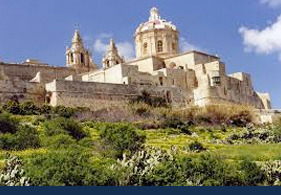
Today’s working environment not only requires a high degree of specialisation whether you’re a firm operating in the industrial sector or in the services industry. Firms have to meet exigent client deadlines in a professional manner to remain competitive and secure market share. With this context in mind, it is often the case that firms have to employ specialised services from abroad either because of a shortage in the Maltese labour market or simply because the particular skill is simply not available.
Subsequent Maltese governments understood this business need and throughout the years amended legislature to make it attractive for foreigners to work or settle in Malta for the medium to long term.
Lamima Consultancy Services Limited through its understanding in people’s management can facilitate:
- Compliance procedures relating to the engagement of Highly Qualified Persons;
- Compute and issue all statutory Income Tax; and
- Facilitate meetings with other professions highly trained in employment law and regulations.
Compliance procedures when engaging a “Highly Qualified Persons”
Highly qualified persons have a specialised definition under Maltese law.
Highly Qualified Persons are considered to hold “eligible office” and this is to be restricted to companies licensed and/or recognized by the Malta Financial Services Authority, companies licensed by the Lotteries and Gaming Authority and undertakings holding an Air Operators’ Certificate or an Aerodrome Licence issued by the Authority for Transport in Malta.
Furthermore, "Eligible office" comprises employment in one of the following positions:
- Actuarial Professional;
- Aviation Continuing Airworthiness Manager;
- Aviation Flight Operations Manager;
- Aviation Ground Operations Manager;
- Aviation Training Manager;
- Chief Executive Officer;
- Chief Financial Officer;
- Chief Commercial Officer;
- Chief Insurance Technical Officer;
- Chief Investment Officer;
- Chief Operations Officer (including Aviation Accountable Manager);
- Chief Risk Officer (including Fraud and Investigations Officer);
- Chief Technology Officer;
- Chief Underwriting Officer;
- Head of Investor Relations;
- Head of Marketing (including Head of Distribution Channels);
- Head of Research and Development; (including Search Engine Optimisation and Systems Architecture);
- Portfolio Manager;
- Senior Analyst (including Structuring Professional);
- Senior Trader/Trader; and
- Odds Compiler Specialist
Expatriates who perform a service as highly qualified persons can benefit from a reduced rate of tax of 15 per cent (15%) on their employment income. The objective of this benefit is to attract highly qualified executives and professional into expanding economic sectors which are potentially high value added economic centres.
Applicable rules to benefit from this scheme:
Employment Income
- Employment income must originate from activity in Malta;
- The Highly Qualified Person must earn a minimum annual salary (excluding tax benefits) of €75,000 adjusted annually according to the Retail Price Index;
- The employment income of the Highly Qualified Person is subject to income tax at a flat rate of 15 per cent (15%) albeit and income over €5,000,000 is tax free;
Qualifying Contractual Obligations
The Highly Qualified Person must:
- Be in possession of an employment contract that genuinely specifies that the work carried out is executed from or in connection to Malta;
- Be in possession of professional qualifications and has at least five years professional experience;
- Has never benefitted from deductions available to investment services expatriates with respect to relocation costs and other deductions (under article 6 of the Income Tax Act);
- Disclose for tax purposes and declares emoluments received in respect of income from a qualifying contract of employment and all income received from a person related to his employer paying out income from a qualifying contract as chargeable to tax in Malta;
- Prove to be in a position of “eligible office”;
- Be in a position to maintain himself and his family without the need to resort to social assistance benefits in Malta;
Expatriates:
Expatriate communities were always welcome to live in the Maltese Islands. The Islands relative size, long hours of sunshine, mild winters, stable economy, political stability, safe environment, natives that can speak multiple languages and some plausible reasons why expatriates decide to leave their homeland and reside in Malta or Gozo.
However, translocating from one part of the world to another can be a very stressful activity. Lamina can help in reducing burden of translocating by aiding expatriates comply with all statutory requirements required by law. Some statutory documents are common to all applicants but others are specific to EU Nationals or Third World Nationals.
Services offered by Lamima Consultancy Services Limited become even more useful when noting that in some occasions the bureaucratic process involves multiple government departments.
Tax planning remains at heart of the services offered by Lamima Consultancy Services Limited. Expats can benefit from special rates of tax on employment income.
Furthermore, foreigners living in Malta, whether for the short or long-term are required to have a permanent address. Lamima Consultancy Services Limited can serve as an interlocutor to find the ideal place in accordance to your budgets and tastes.
Statutory documents required when deciding to reside in Malta:
The documentation required as indicated hereunder differ between two cohorts, being: EU Citizens and Non EU Citizens.
Applications required for a Maltese residence permit:
APPLICABLE TO ALL APPLICANTS
- Electronic Identity Registration Form – Form ID 1A
- Image Capture Application Form – Form ID2
- Exempt Person Status (Spouse of a Maltese National) CEA Form E
- Permanent Residence Scheme (Certificate by the Commissioner for Inland Revenue) – SEA Form A
EU Nationals
- Electoral Form
- Economic Self Sufficiency - CEA Form I
- Employment/Self Employment – CEA Form A
- Family Members – CEA Form F
- Permanent Residence – CEA Form P
- Study – CEA Form M
Non EU Nationals
- Blue Card – CEA Form J
- Economic Self Sufficiency - CEA Form K
- Employment/Self Employment – CEA Form C
- Family Members – CEA Form G
- International Protection – CEA Form I
- Long Term Residents – CEA Form L
- Students – CEA Form N
- Temporary – CEA Form O
Single Permits
Applications by Third Country Nationals for both residence and employment permits are also possible, however the procedure is slightly more bureaucratic as it is managed by three separate and autonomous governmental units; Identity Malta, the Police Immigration Office and the Employment and Training Corporation.
In such cases applications for work and residence permits have to be endorsed directly by the employer. Furthermore, the result of application will be communicated to the employee by Identity Malta and only in the case of an approved application can the person proceed to Malta.
For further information on may wish to consult the following guidelines compiled by the Employment and Training Corporation.
The following are the application forms associated with Single Permits:
Employment/Self Employment – CEA Form C with the signatures of both the employee and the employer;
- Covering letter by the employer explaining the need to engage the services of the applicant;
- Position description filled and signed by the Employer;
- Curriculum Vitae signed by the applicant;
- Qualifications (together with an MQRIC certificate or receipt) OR reference letters that add up to 3 years of experience;
- Full copy of the passport and photocopy of the Maltese Residence Card (if applicable);
- Local hospital full-refund health insurance cover which is valid for at least one year;
- Lease agreement and a dated photocopy of the ID card of the landlord;
- Health Screening from the Health Promotion and Disease Prevention Directorate – Chest X-Ray [applicants from Australia, Canada, Iceland, Israel, New Zealand, Switzerland, USA, EU/EEA countries – except for Romania and Bulgaria – are excluded from this requirement];
- ETC Employment License (if applicable);
Tax on Income
Tax on income in Malta is charged at progressive rates and different computation procedures apply (Married rates, single computation rates Parent rates, Non-resident rates)
Income tax rates to non-residents
|
Taxable Income (€) |
Rate (%) |
Deduct (€) |
|
0 -700 |
0 |
0 |
|
701 – 3,100 |
20 |
140 |
|
3,101 – 7,800 |
30 |
450 |
|
7,801 and over |
35 |
850 |
- Reside in a household with a fixed address that meets general health and safety standards;
- Be in possession of valid travelling documents; and
- Be in possession of a comprehensive health insurance plan that covers all family members residing in Malta.
For further information regarding expatriate compliance procedures for either employment purposes or for the Highly Qualified Persons scheme kindly contact:
Key Contacts:
Alex Agius
Managing Director
Marica Bonello
Senior Auditor
Lamima Consultancy Services Ltd
Email: info@lamima.com.mt
Tel: +356 21423059
















